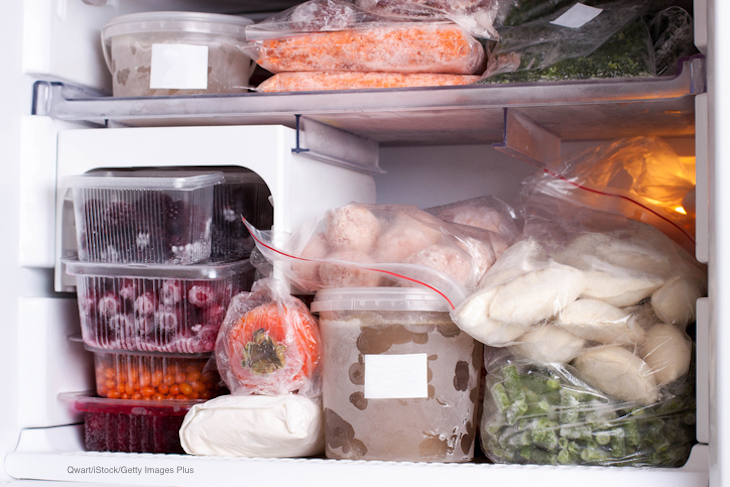So it’s cold outside, and your refrigerator and freezer are packed after a shopping trip. Is it safe to store food outside during these cold winter months? Or even cool down perishable foods like cooked meats or gravy?

According to experts, no. Even if you put the food on the porch or in your garage to keep it away from animals, you are taking a big risk, according to the experts at Penn State Extension. The issues are uncontrolled temperature fluctuation and possible contamination.
The danger zone for bacterial growth in food is 40°F to 140°F. In this temperature range, bacterial counts can double every 20 minutes. And since it can take only ten E. coli bacteria, for instance, to make your very sick, food can become dangerous to eat very quickly.
Your refrigerator should be set to a temperature less than 40°F, and your freezer to 0°F. But just because it feels cold outside, or your outside thermometer says it’s the correct temp for keeping food safe, doesn’t mean that’s accurate in the place where you put the food. Even temps in the sun can be warmer than temperatures in the shade. These variables make storing perishable food outside risky.
It’s not safe to thaw foods outside either, for the same reason. Thawing meats must be kept below 40°F or bacteria will grow.
There are other factors to consider as well. If the food container is placed on a surface that isn’t clean, such as the garage floor, it could pick up bacteria. When you put that container on your kitchen counter or back into the fridge, that surface is now contaminated. And any food placed outside that is not inside a structure is vulnerable to contamination from animals.
And here’s a consideration: air flow. Your refrigerator has a fan that moves heat away from food and helps ensure that food is cooled uniformly. That’s why it’s not safe to let some foods cool down outside. A large pot of gravy or soup placed outside may not cool evenly and quickly enough to prevent bacterial growth. Pathogens such as Clostridium perfringens can grow in these foods and make you sick.
So do not store food outside because of these factors. You can store water in bottles outside if placed in a sturdy cooler, but there are just too many risks associated with this behavior and perishable foods.




